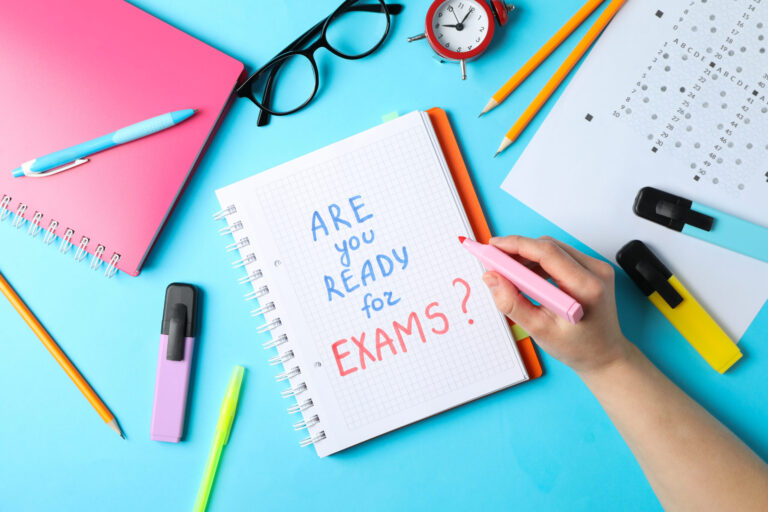As part of the IB diploma program, IB French aims to equip students aged 16-19 with linguistic skills and cultural appreciation. Regardless of the student’s proficiency level, the course caters to various language backgrounds, from native French speakers to those who have just started picking up the language.
Most students learn a second language in earlier years through IB Ab initio classes. Upon entering high school, they already possess basic language comprehension to explore in-depth topics in the program. If you’re on the exciting journey of learning French, this article is a great resource for an overview of IB French and the preparation steps before the external exam.
What is the IB French exam?
The IB French exam is a set of evaluations conducted by teachers and the IB Board to assess the student’s language competency. The four core assessment areas include listening, reading, writing, and speaking. Students are expected to demonstrate their understanding of the language and the ability to communicate effectively in both written and oral forms.
Depending on the program, students sit the exam at Higher (HL) or Standard Level (SL). Both formats are the same, although HL students have to tackle more complicated tasks and questions. Another notable thing is that the percentages of each component, Paper 2, for example, toward the final grade, are different. For this reason, students should consider adopting the right exam strategies to avoid missing points on essays with the highest weight.
What should you pay attention to when preparing for IB French?
Speaking a language fluently may be a formidable quest, but there are many useful tips and strategies for students to be well-prepared for the IB French exam. Remember that your dedication will be paid back, so don’t give up on improving your language skills daily during the course.
Practice your basic skills regularly
Basic skills are the cornerstone to more advanced learning in the language. These include vocabulary, grammar, pronunciation, and the like. Try to familiarize yourself with French and set reasonable academic goals to stay motivated. For instance, you may learn 15 new words by the end of this week.
The key is keeping a consistent schedule for practicing your basics. A study plan or timeline should help make things more organized and easy to navigate. Don’t forget to leave space for flexible adjustments and other extracurricular activities.
Develop your language skills
You can develop your language abilities by utilizing several techniques, such as creating flashcards, watching French TV shows or films, talking to native speakers, and writing essays on different topics. Thanks to online tools and technologies, gaining access to French content is simpler than ever. In short, what students should do is try to expose themselves to the language as much as possible.
Seek help from IB French tutors
If you need help, don’t be afraid to ask for it. IB French tutoring is an effective method for having one-on-one conversations in French. Not only that, a personal tutor also offers support in completing assignments, improving pronunciation, perfecting essays, and boosting confidence.
Plus, online tuition allows students to practice French in the comfort of their own homes or a preferred location like a neighborhood cafe. You can choose your favorite place and time to meet with a tutor and learn this beautiful language. Sounds wonderful, doesn’t it?
Practice with past papers
Past papers are available on many sites that you can easily access. Practicing with the ones lets you gain insights into exam structure and, more importantly, the timing for each section. It’s a fact that students make regrettable mistakes under time constraints, so set a timer to work on practice papers to see how that turns out. This trains your mentality for writing essays with the tick-tock sound of a clock.
Remember that an important section of the test is listening comprehension. A recommendation is to get used to regional accents and word usage. Also, try listening to various themes and topics and expand your knowledge and vocabulary so you don’t get startled to hear a term for the first time during the test.
Work on your mistakes
Even top-tier students make mistakes all the time, so don’t panic if you find errors in your assignments and essays once in a while. However, take this opportunity for self-reflection. What are your weaknesses? What measures can help you overcome your drawbacks? These are some common questions that encourage you to avoid recurring mistakes and improve performance.
Regular review and feedback can further help you reinforce the correct usage. Ask your teacher or tutor to review your work, pointing out weak areas and providing explanations. Engaging with peers can also be beneficial; learning from each other’s errors and corrections can deepen your understanding. The process takes time, so stay patient!
Strategize and succeed
Getting ready for the IB French exam demands commitment, regular practice, and careful planning. Take advantage of every chance to learn, ask for help when necessary, and continually improve your abilities. With determination and the right strategies, you’ll be prepared to succeed in your exam and find joy in mastering French.

